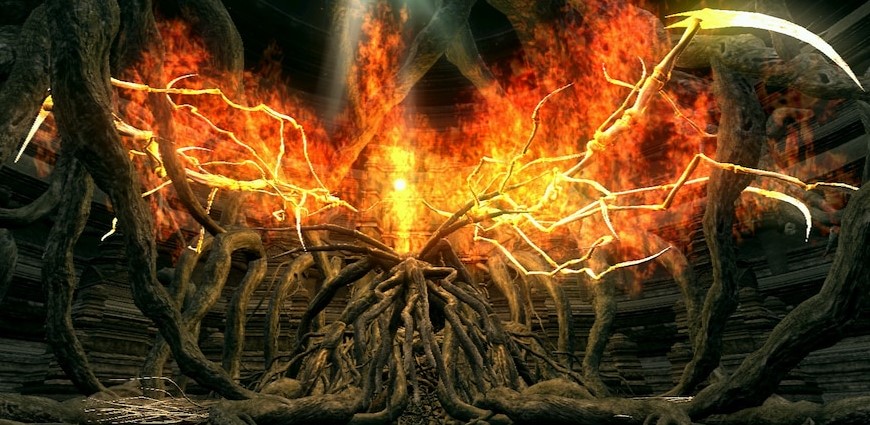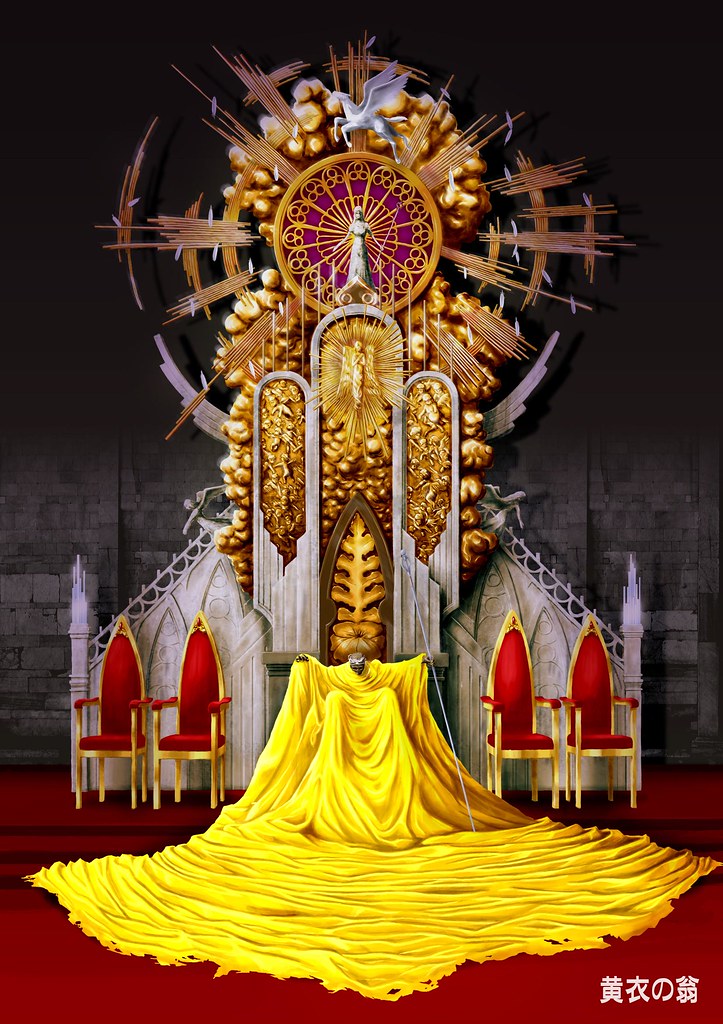Hidetaka Miyazaki reveals the Souls boss he's most proud of
No it's not Bed of Chaos.

Fromsoft president and Elden Ring director Hidetaka Miyazaki is doing the rounds in the runup to Elden Ring's release later this month. The official Playstation blog posted a new piece where various luminaries from Playstation Studios pick their favourite FromSoft boss from across the various Souls games—as part of which, Miyazaki contributed his own feelings on the matter.
"If we’re talking about a boss that I’m 'most proud of' (to use those specific words), it would probably be the Old Monk from Demon’s Souls. The reason being is there was a lot of pushback against that design and what we were trying to do with it. But it was something I really, really wanted to do. I wanted to get that boss concept into the game, both from a visual design perspective and gameplay perspective, including the multiplayer element."
The Old Monk is a boss in the Latria area of Demon's Souls, the opening area of which is probably the single scariest environment FromSoft has ever produced. After working your way through various challenges the player approaches a final tower where the robes of the land's once-king reside. As the player approaches, the game summons another player into the game, and casts them as the Old Monk boss: Complete with extra powers and health bar.
It is a genuinely jaw-dropping moment: The first time it happened, I couldn't quite believe I was facing another player as the big boss. Later, I got into it, and spent ages being summoned as the Old Monk myself.
"From both the implementation and fun factor, we got a lot of pushback, and no one believed in it at the time," Miyazaki continues. "But in the end, we came through, and I think it turned into an intriguing boss that the fans appreciated. With Demon’s Souls, there were a lot of mechanics throughout the development that were difficult to design. For instance, the asynchronous online features were complicated, but I think the Old Monk encompasses those tribulations and how we pushed through and made something we were proud of."

The full article can be read here, and is a nice reminder of just how elegant some of these battles can be. There's this shorthand notion that all people remember about these things is the challenge but the nature of these encounters is so much more than that. I was especially pleased to see Anna Marsh, a design director at Firesprite, pick out Sekiro's Lady Butterfly: A boss that was my first major block in the game, and a fight I struggled to adapt to before, eventually, coming to adore its hard-hitting grace and rhythm.
"Its unusual to see older women in games, particularly as able combatants, so I was a fan of Lady Butterfly even before the fight started; a tough, hyper-skilled martial artist bringing decades of experience to bear on her former pupil, a fight she’d rather not have but is duty bound to deliver," writes Marsh. "The fight is a masterclass in melee combat—the telegraphing, balancing, cancelling… it’s all completely spot on.
The biggest gaming news, reviews and hardware deals
Keep up to date with the most important stories and the best deals, as picked by the PC Gamer team.
"Rarely can I truly say luck did not play a part in beating a boss, but the Lady Butterfly fight is so impeccably set up and animated, the rhythm and flow of attacks prompting deflections, evasions and just the right windows of attack opportunity, beating her felt like 100% hard won skill. And all done without a flashy huge demonic form, just a regular shaped human. One of my favourite bosses of all time."

Rich is a games journalist with 15 years' experience, beginning his career on Edge magazine before working for a wide range of outlets, including Ars Technica, Eurogamer, GamesRadar+, Gamespot, the Guardian, IGN, the New Statesman, Polygon, and Vice. He was the editor of Kotaku UK, the UK arm of Kotaku, for three years before joining PC Gamer. He is the author of a Brief History of Video Games, a full history of the medium, which the Midwest Book Review described as "[a] must-read for serious minded game historians and curious video game connoisseurs alike."

